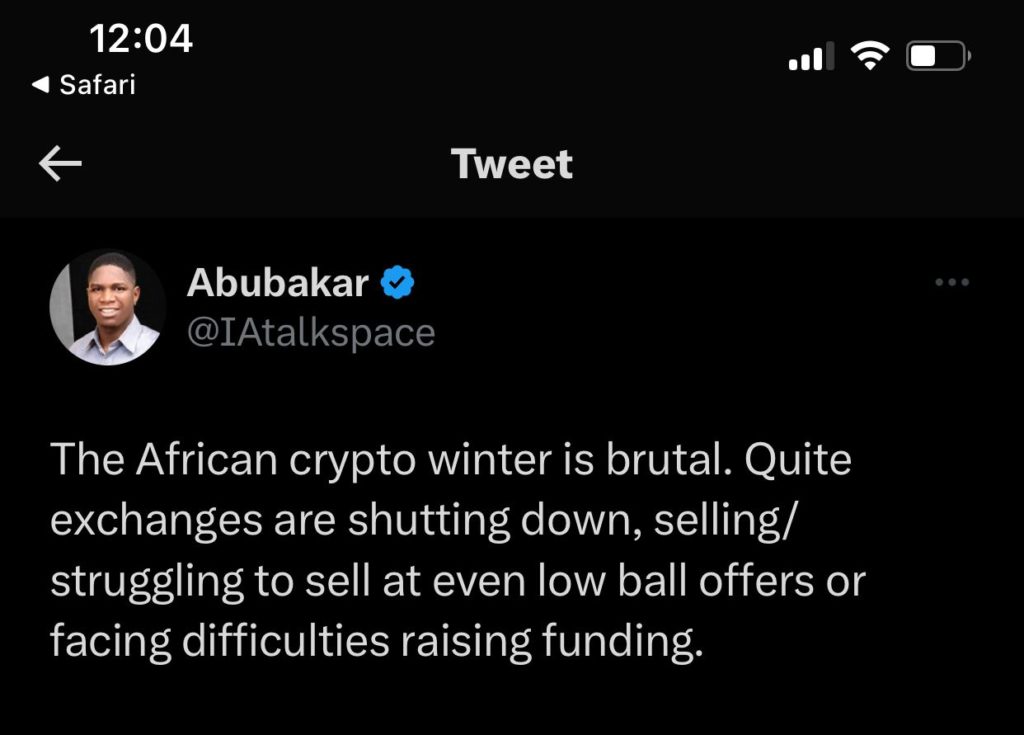Paxful, a global Bitcoin marketplace with strong roots in Africa, is shutting down operations and returning funds to users. The CEO, Ray Youssef, cited mass staff exits and increasing regulatory issues as reasons for the company’s closure.
The peer-to-peer Bitcoin platform is popular in Africa, with Nigeria and Kenya among the top countries on its volume-by-country list. According to Youssef, the exits were so bad that “there were no engineers, compliance team members, or security personnel left working at the company.” This situation painted a huge security risk that prompted the decision to close the company’s doors.
With this announcement, Paxful joins the list of US-based crypto companies that have had to shut down amid regulatory fire. Last Friday, Bittrex, a Seattle-based crypto exchange, announced its wind down as a result of regulatory challenges. Another US-based platform, Beaxy, was shut down by the Securities and Exchange Commission for operating an unregistered exchange. Even the crypto behemoth, Binance was sued last week by the Commodity Futures Trading Commission for violating compliance rules.
Youssef believes the US regulators “still don’t get it,” and are growing increasingly suspicious of crypto companies. However, several reports reveal that infightings may have contributed to the company’s problems.
Paxful’s cofounder Artur Schaback took to the courts to challenge Youssef and the company after, according to Youssef, he’d been kicked out over a year ago. Youssef said Schaback’s “nasty litigation team” forced the exit of senior staff members in the company.

With Paxful’s exit, the spotlight is again on African crypto companies, many of which are registered in the US. As the crypto winter continues for another year, we can only hope that the ripple effects of these shutdowns and regulatory actions are not ruinous for Africa’s crypto ecosystem.
TechCabal asked an anonymous staff of Quidax about the local implications of the struggling US crypto ecosystem. “We don’t do business in the US. Quidax is registered here in Nigeria,” the staff responded.





















